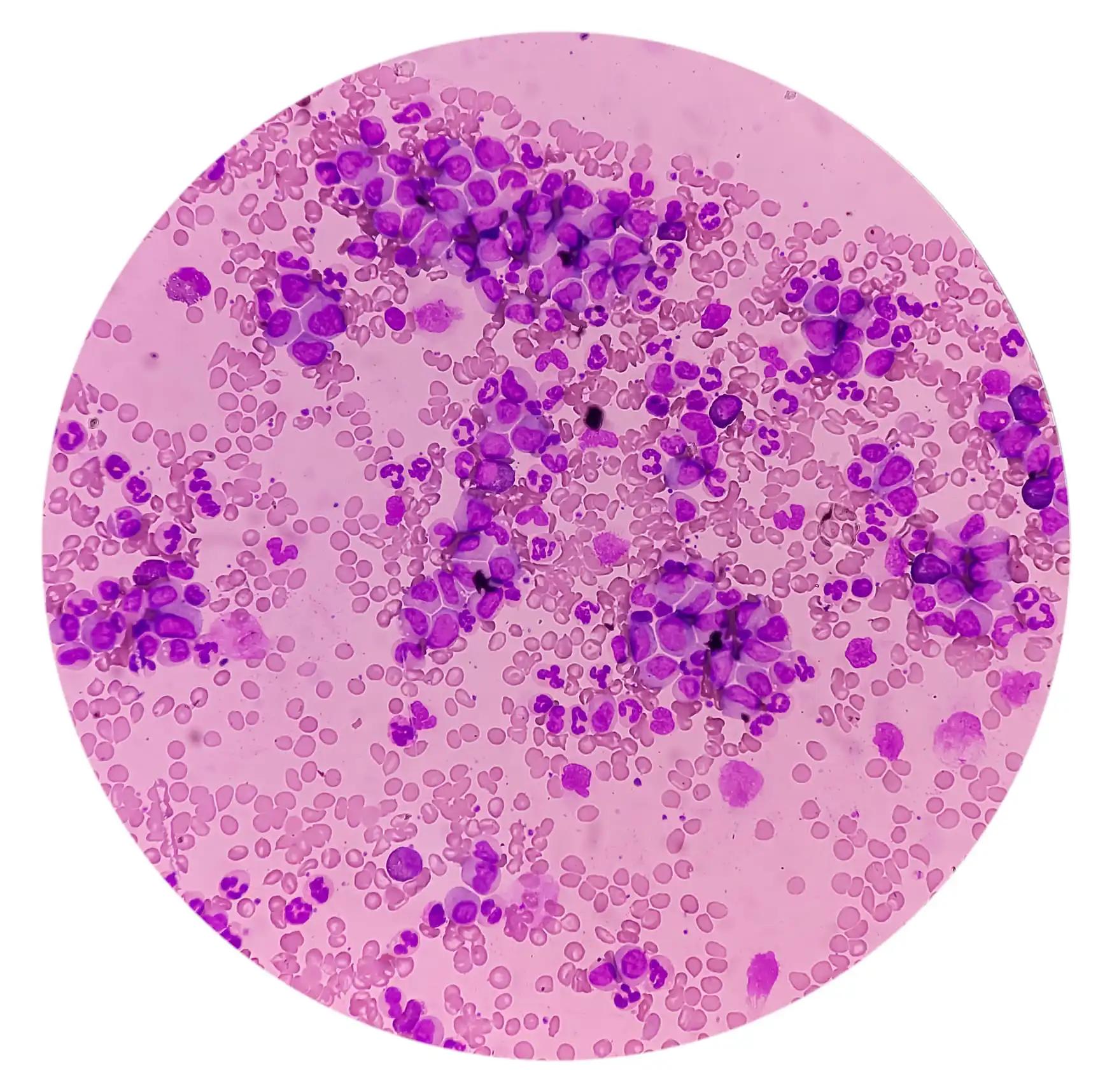KEY TAKEAWAYS
- This Phase 2 trial explored the option of chemotherapy-free therapy to treat CML and ALL among patients without prior treatment history, recurrence, or intolerability to prior treatments.
- In this single-arm trial, eligible participants were given ponatinib, blinatumomab, and chemotherapy at different trial stages.
- The primary outcome measures of the trial were Complete Molecular Response, Overall Response Rate, Relapse-Free Survival, Event-Free Survival, and Overall Survival.
- Ponatinib and blinatumomab combination leads to high molecular response rates in Ph-positive ALL, sparing toxicities of chemotherapy and the need for HSCT in the first response
The phase 2 of this trial targets patients with newly diagnosed, relapsed, or refractory Philadelphia chromosome-positive (Ph-positive) acute lymphoblastic leukemia or chronic myeloid leukemia in the lymphoid blast phase who did not respond to prior treatments or suffered recurrences to explore ponatinib and blinatumomab combination as chemotherapy-free treatments.
For up to five 42-day cycles eligible patients were given a mixture of ponatinib 30 mg orally and continuous intravenous blinatumomab 28 g over 24 h (for 28 days each cycle), followed by ponatinib monotherapy. Intrathecal chemotherapy was administered as CNS prophylaxis in 12 dosages to the patients.
The primary endpoints were overall response in patients as well as complete molecular response in patients with newly diagnosed diseases. Ponatinib and blinatumomab were administered to 60 (83%) of the 72 patients evaluated. Of these, 40 (67%) had recently been diagnosed with Ph-positive acute lymphoblastic leukemia, 14 (23%) had relapsed or been refractory, and six (10%) had chronic myeloid leukemia in the lymphoid blast phase. For the total cohort, the median follow-up time was 16 months (IQR 11-24).
Six individuals with lymphoid blast phase chronic myeloid leukemia had five (83%) overall responses. Only two (33%) people had a full molecular reaction. 33 (87%) of 38 evaluable patients with recently discovered Ph-positive acute lymphoblastic leukemia had a full molecular response. A total response was seen in 12 (92%) of 13 evaluable individuals with relapsed or refractory Ph-positive acute lymphoblastic leukemia. 11 (or 79%) of them had a full molecular reaction.
Infection (22 [37%] patients), increased amylase or lipase concentration (five [8%] patients), increased alanine aminotransferase or aspartate aminotransferase concentration (four [7%] patients), pain (four [7%] patients), and hypertension (four [7%] patients) were the most frequent grade 3–4 adverse events that occurred in more than 5% of patients. There were no reported treatment-related fatalities.
Patients with freshly diagnosed, relapsed, or refractory Ph-positive acute lymphoblastic leukemia experienced high rates of full molecular response when treated without chemotherapy with ponatinib and blinatumomab. Allogeneic hematopoietic stem-cell transplantation and the toxicities of chemotherapy could be avoided in patients with recently diagnosed Ph-positive acute lymphoblastic leukemia.
Source:https://www.thelancet.com/journals/lanhae/article/PIIS2352-3026(22)00319-2/fulltext
Clinical Trial: https://clinicaltrials.gov/ct2/show/NCT03263572
Jabbour, E., Short, N. J., Jain, N., Huang, X., Montalban-Bravo, G., Banerjee, P., Rezvani, K., Jiang, X., Kim, K. H., Kanagal-Shamanna, R., Khoury, J. D., Patel, K., Kadia, T. M., Daver, N., Chien, K., Alvarado, Y., Garcia-Manero, G., Issa, G. C., Haddad, F. G., Kwari, M., Thankachan J., Delumpa R., Macaron W., Garris R., Konopleva M., Ravandi F., Kantarjian, H. (2023). Ponatinib and blinatumomab for Philadelphia chromosome-positive acute lymphoblastic leukemia: a US, single-centre, single-arm, phase 2 trial. The Lancet. Haematology, 10(1), e24–e34. https://doi.org/10.1016/S2352-3026(22)00319-2



